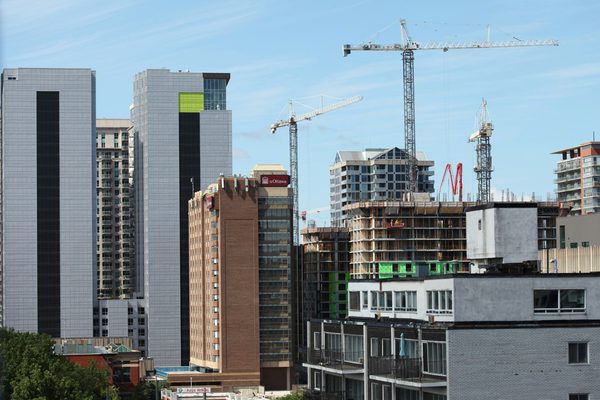What is the built environment and how does it impact human rights in Lagos?
4 May 2023
Lagos is a megacity, with a population of 24 million. Two thirds of its inhabitants live in informal housing.
What is the built environment in Lagos and why is it important to business and human rights?
Simply put, the built environment is the places we spend most of our lives - homes, offices, streets and parks. It's also the infrastructure that connects them - transport, energy, and water for example. Businesses - developers, architects, construction firms - play a huge role in shaping the built environment.
In this episode of Voices you will hear from Kenny Aderogba from Spaces for Change - a non profit organisation based in Lagos, Nigeria. Kenny talks with IHRB’s Annabel Short about how her organisation is improving the city’s built environment, which is key to inhabitants leading happy and healthy lives - and to the realisation of human rights.
Annabel discovers how Kenny’s work with Spaces for Change is supporting the voices of marginalised people to be heard when it comes to decision making that affects their built environments. They discuss the impact of climate change on Lagos and the importance of building sustainable housing that’s accessible to all.
IHRB has published a summary report – Pathways for a just transitions in Lagos' built environment. Part of a 2-year research on focusing eight cities' built environment decarbonisation and resilience plans, the research asks: how is each city minimising the negative social consequences of climate action, and maximising the positive impacts that built environment can have for inhabitants and the environment? And what are recommended actions from the government, investors, and the private sector?
Stream above, or you can listen on your favourite podcast player.
If you care about human rights and are curious about the impact of business on peoples’ rights, then follow Voices to get each episode straight to your feed.
Host: Deborah Sagoe, IHRB's Communications Coordinator
Producer & Editor: Helen Brown
Additional Contributors: Sam Simmons, IHRB's Head of Communications






